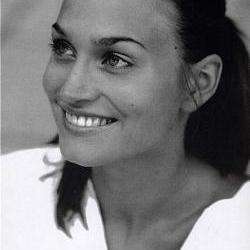As living American composers go, William Bolcom is no small fish. Three operas, nine symphonies, collaborations with a laundry list of who’s who in the classical world, and an impressive list of instrumental and chamber music compositions and songs have earned him not only a Pulitzer Prize, but an uncontested place in the canon of American composers. What a pleasure then, that nearly a quarter century after its première with the Chicago Lyric Opera (1992), Bolcom’s McTeague, a two-act opera based on the 1899 novel McTeague: A Story of San Francisco by Frank Norris, was warmly received at its European première with the Landtheater Linz. Despite certain inherent flaws, the compositional quality, musical realization and visual strength made for a memorable evening full of melodies and themes both jaunty and jarring.
Bolcom is renowned for his combination of modern classical techniques combined with nods to popular music styles. Whether one refers to this compositional bent as pastiche or paraphrase, it was fully in effect. Instead of developing motifs or material to foreshadow or characterize the protagonists and action throughout the work, each musical section in McTeague has its own unique character. Blessedly singable vocal lines hang over suspended string sounds, or move over a repeating, rhythmic orchestral thought. Instrumentation is inventive, and blues, ragtime and jazz live side by side with soaring operatic lines and dissonance, often separated only by the entrance of a new character or a scenic shift. Though moving through such a plethora of musical worlds sometimes threatens to lack unity, the libretto is so straightforward that the musical variety is quite welcome.
The subtitle given for the European version reads “Gier nach Gold” (Greed for Gold) and was a largely unnecessary touch, as there is no doubt in anyone’s mind about the morality lesson of the work at any point in time. The opening desert scene, a flash-forward, features an absolutely blinding golden orb, under which a ruined McTeague (Corby Welch) stumbles, singing of his sad fate. During the second scene we meet his best friend, Marcus Schouler (Michael Wagner). Schouler’s cousin and soon-to-be fiancée, Trina Sieppe (Çiğdem Soyarslan), and maid Maria Miranda Macapa (Karen Robertson). The four share their experiences with gold and remark that it changes everyone it touches. That things will go badly, with gold to blame, could not be more clear – and go bad they most certainly do. McTeague falls in love with Trina and marries her, which is almost fine with Schouler until Trina wins 5,000 dollars in gold on a lottery ticket. The descent into betrayal, insanity and mutual loathing is inexorable, ending (spoiler alert) with Trina strangled, crazy Maria lost in the desert, and the two men handcuffed to each other – in Death Valley – dying or dead of dehydration and strangulation.
Musically, there were countless memorable moments; the only times it fell a bit flat for me were during Schouler’s aria of revenge in the second act, which lacked dramatic conviction, and the jaunty musical treatment of the death duet between Schouler and McTeague which undermined the inherent gravity of the dramaturgy. The overall strength of the music and drama was supported by a convincing cast. Çiğdem Soyarslan has the voice of a sensual angel; there is spin and height in her soprano that knows no bounds, and her love scene with McTeague seemed suspended in time. Her portrayal of the beautiful yet neurotic Trina was well-rounded and gripping, and her text came through in every register. Likewise, Corby Welch incorporated the brutish power of McTeague both physically and vocally, providing the listener with a complex protagonist to be both pitied and feared.
Michael Wagner gave an energetic and vocally convincing rendition of the embittered, self-styled dandy, Marcos Schouler. Karen Robertson, depicting a Hispanic maid playing with one card short of a full stack had a particularly effective showing in the second act, and lent needed comic relief to a dark tale of tragedy and ruin.
The stage design (Mathias Fischer-Dieskau) and direction (Matthias Davids) were inventive and understated, apart from the aforementioned massive orbs of suspended light. The rotating stage alternately depicted San Francisco, gold-rush street-fronts, which collapsed periodically into driftwood and wreckage for the five “desert scenes” which were interspersed throughout the opera. The crowd scenes were well-constructed, and utilized well the Landestheater Linz choir, and the Bruckner Orchester was in excellent hands under the baton of Dennis Russell Davies.
Well done to the entire team and crew at the Landestheater for a powerful production that should make even the most gold-hungry capitalist rethink buying that next lottery ticket.




